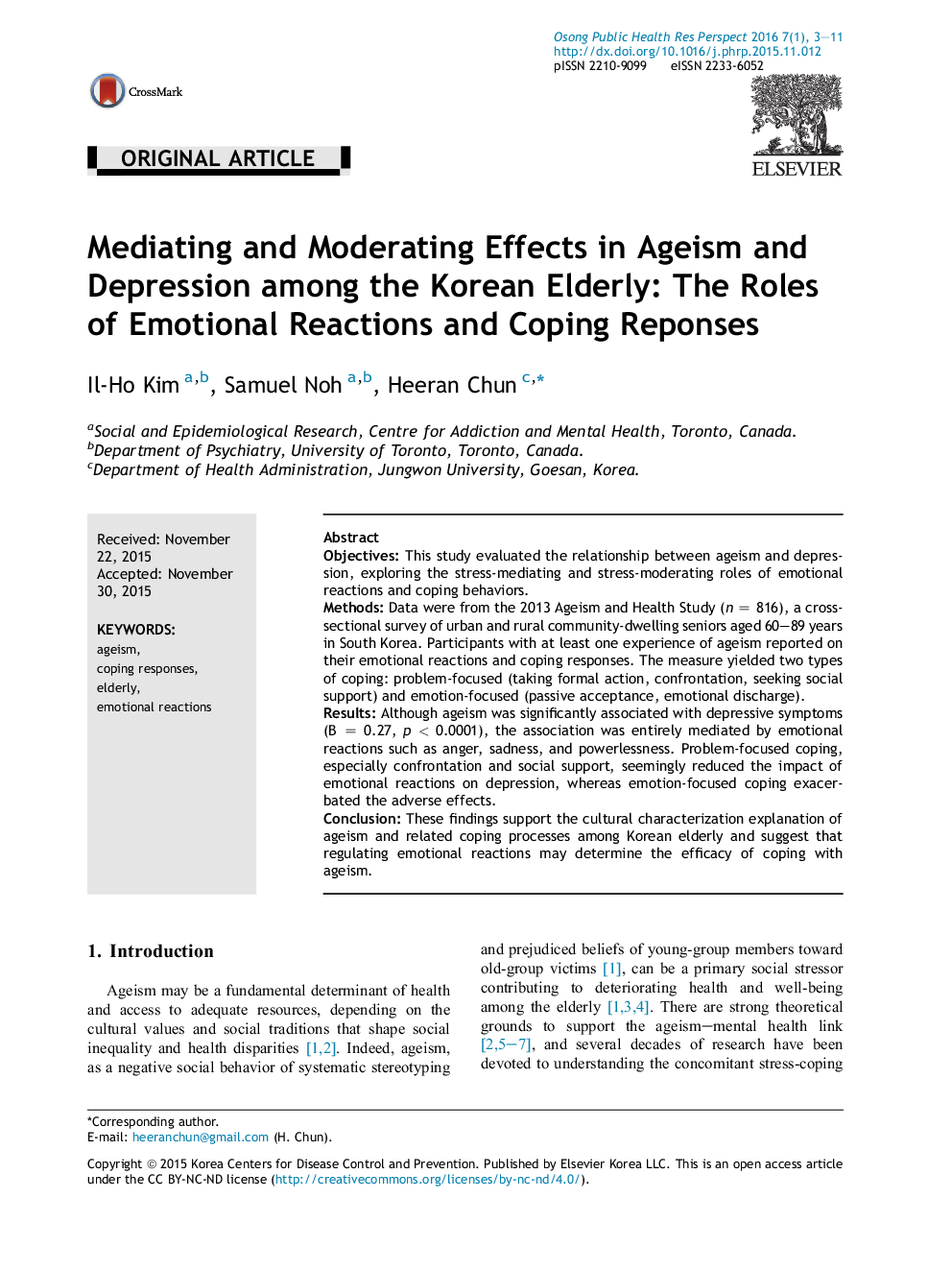| Article ID | Journal | Published Year | Pages | File Type |
|---|---|---|---|---|
| 4201836 | Osong Public Health and Research Perspectives | 2016 | 9 Pages |
ObjectivesThis study evaluated the relationship between ageism and depression, exploring the stress-mediating and stress-moderating roles of emotional reactions and coping behaviors.MethodsData were from the 2013 Ageism and Health Study (n = 816), a cross-sectional survey of urban and rural community-dwelling seniors aged 60–89 years in South Korea. Participants with at least one experience of ageism reported on their emotional reactions and coping responses. The measure yielded two types of coping: problem-focused (taking formal action, confrontation, seeking social support) and emotion-focused (passive acceptance, emotional discharge).ResultsAlthough ageism was significantly associated with depressive symptoms (B = 0.27, p < 0.0001), the association was entirely mediated by emotional reactions such as anger, sadness, and powerlessness. Problem-focused coping, especially confrontation and social support, seemingly reduced the impact of emotional reactions on depression, whereas emotion-focused coping exacerbated the adverse effects.ConclusionThese findings support the cultural characterization explanation of ageism and related coping processes among Korean elderly and suggest that regulating emotional reactions may determine the efficacy of coping with ageism.
